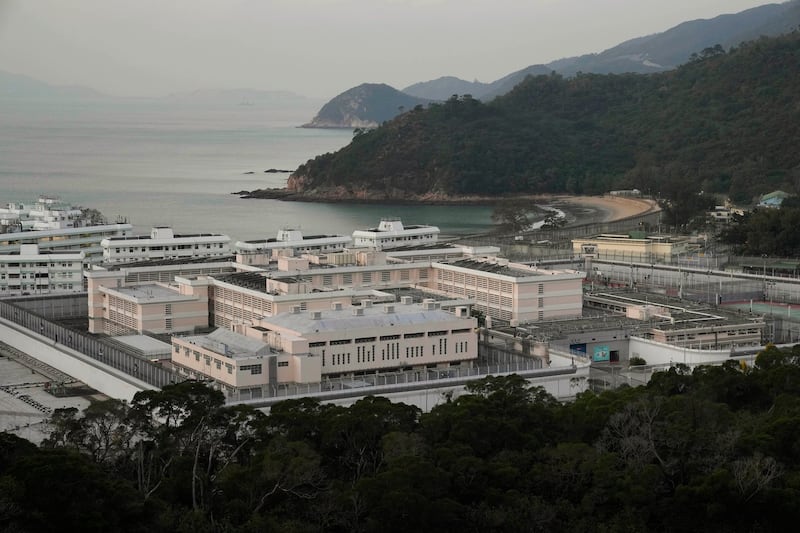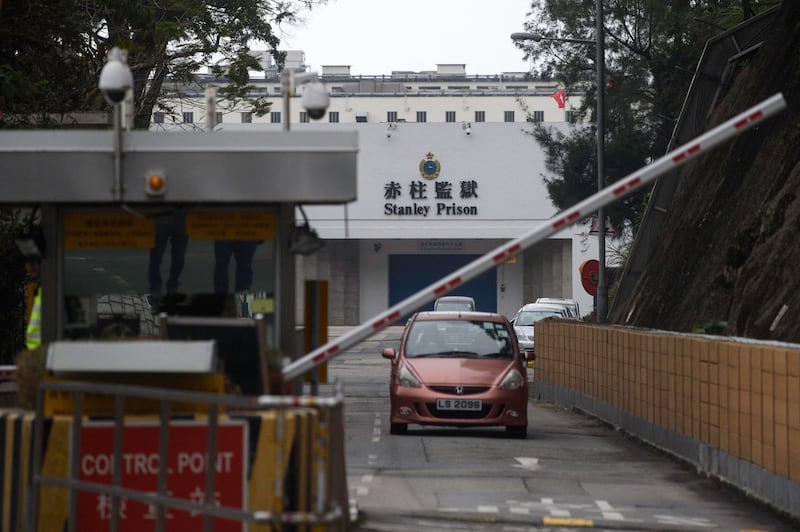As Hong Kong continues to swelter through a July heatwave, the authorities have opened up heat shelters across the city for people needing to cool down to avoid heatstroke.
But for thousands of inmates in the city's prisons – many of whom are there for taking part in the 2019 protest movement for fully democratic elections – there is scant respite from the heat.
As the city's Centre for Health Protection recommends that the general public "use a fan or use air-conditioning to maintain good ventilation," and find cooler places to seek respite from heat.
"Many prisons [in Hong Kong] are located in the suburbs, where the temperature is 2°C higher than in urban areas," social worker and former pro-democracy lawmaker Shiu Ka-chun told a YouTube channel run by the city's Democratic Party. "The temperatures in the cell-blocks get even higher, and the inmates get extremely hot."
"They will sweat all over just from the slightest movement, and they don't feel like reading or writing letters," he said.
Hot concrete boxes
The hottest time for prisoners is between 6.30 and 8.30 p.m., Shiu told former Democratic Party lawmaker Emily Lau in an interview aired July 21. "The sun may have set, but the concrete buildings have absorbed all of the heat [from the day]."
"Inmates often have to pour water on their bunk or on the ground before they can go to bed."
According to the Hong Kong Observatory website, Very Hot Weather warnings are issued to warn people to "take all necessary protective measures against the heat."

But inmates can't just head down to the nearest air-conditioned restaurant, convenience store or one of the 19 government-run heat shelters for respite.
"The heat doesn't disperse until 9.00 or 10.00 p.m.," an inmate who gave only the nickname Jess told the Democratic Party. "Some inmates just strip naked – we try whatever we can to try to get cooler."
"There is only a very small basin in each cell, the kind where you have to press the faucet down to get the water," he said.
"We spend the whole evening standing by the toilet naked using the cup they give you for rinsing your mouth to pour water on ourselves," Jess said. "The cell looks like a public toilet, drenched in water."
"We often hear other inmates yelling out and cursing about the heat ... because it really is unbearable," he said.
Shiu's former prison charity Wall-fare, which disbanded after Beijing imposed a draconian national security law on Hong Kong banning public criticism of the authorities, once tried to highlight the issue of extreme temperatures in Hong Kong jails with a petition.
The May 2021 petition garnered some 100,000 signatures within just 33 hours, according to reports from the news site HK01.com and the Ming Pao newspaper.
According to Shiu, prison staff also suffer from extreme heat in their place of work.
Thousands of protesters
While the Correctional Services Department has made some attempts to improve temperatures by installing large fans and reflective paint in some facilities, it's not enough, he said.
"Is this one of the ways they are punishing us for committing a crime?" Jess said. "Under that logic, they won't install air-conditioning, although the correctional system denies this."
In a 2022 report on global human rights practices, the U.S. State Department mentioned "extremes of temperature" as part of "abusive" treatment of prisoners in Hong Kong.
"Human rights activists raised credible concerns that some prisoners and individuals in pretrial detention were allegedly kept in solitary confinement for extended periods of time and, in some cases, were subjected to 24-hour lighting, excessively hot or cold temperatures, or other degrading conditions as punishment for sharing information with other detainees or for requesting improved conditions while in detention," the report said.
The government responded that "the Correctional Services Department is committed to providing a secure, safe, humane, decent and healthy custodial environment for persons in custody," and that inmates have the right to lodge complaints through several channels.
"All complaints by persons in custody will be handled in an open, fair and just manner," it said.

Thousands of people have been jailed in Hong Kong since the 2019 protest movement, which fought against the erosion of the city's promised freedoms and demanded fully democratic elections, in a movement that the ruling Chinese Communist Party has blamed on "hostile foreign forces" seeking to foment a " color revolution" in the city.
The London-based rights group Hong Kong Watch, which maintains a database of political prisoners in Hong Kong, said that "lawfare, the abuse of the law to crackdown on political opponents and democrats, has been a central part of Beijing’s strategy to strangle opposition in Hong Kong."
"Since the protest movement started, more than 10,000 people have been arrested in protest-related cases, and over 2,300 charged," it said.
"Many of them have been detained and are facing prosecution under the National Security Law and illegal-assembly rules," it said.
Translated by Luisetta Mudie .
